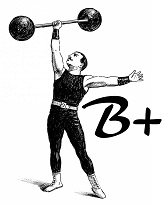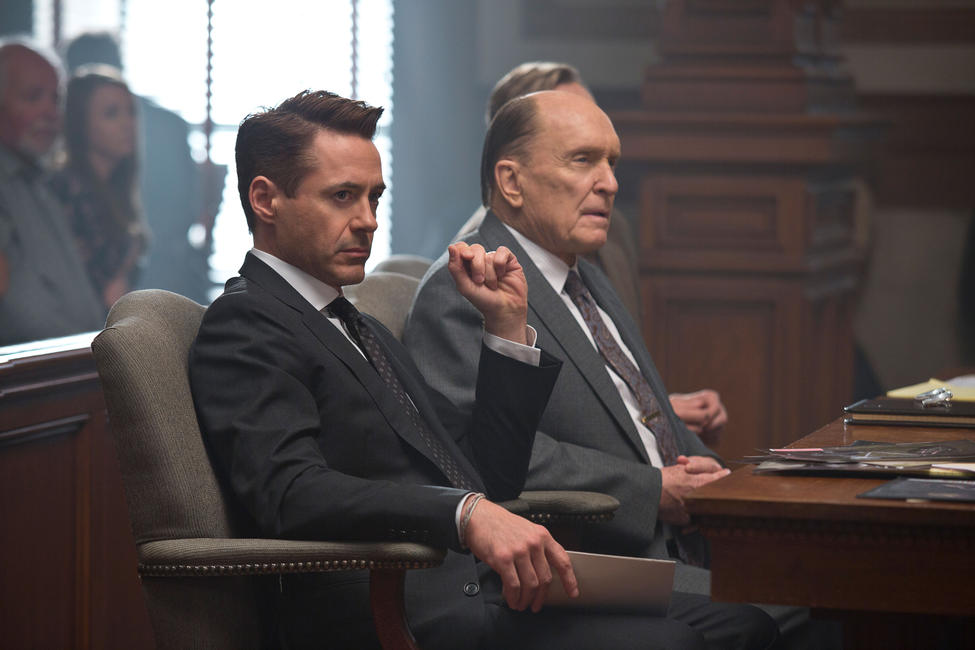“The Judge,” Robert Downey Jr.’s latest vehicle, merges courtroom drama with family dynamics, with mixed results. I’ve read that Gene Siskel hated trailers, and after seeing both the trailer and the movie, I understand why. “The Judge,” while melodramatic at times, is more family drama than courtroom blockbuster, more indie than Hollywood. This is a compliment. We have many films, such as “A Time to Kill” or the renowned “12 Angry Men” for films that wish to obsess about the verdict. Here we have a film about a family torn apart, a film about lawyering, and a look at people attempting to move past decade-long wounds.
This is the second film I have seen starring Robert Duvall that casts the man in a different light than we are used to seeing. The first was the intriguing “Wild Horses,” which shares similar notes to “The Judge,” although the latter offers more cohesive depth and screenwriting. Duvall here plays Judge Palmer, an ornery, by-the-book magistrate who seldom misses the opportunity to pass out grandfatherly advice. “’Yeah’ is not an affirmation that serves you in court,” he admonishes one youth who appears before him. His son, Hank Palmer (Downey Jr.) sits in the stands above, observing. Hank is a hot-shot, never-lose-a-case attorney from Chicago who has flown in to small-town Indiana for his mom’s funeral. He appears loving son, with Judge Palmer a loving husband and father…with one catch: the two haven’t spoken in years. “Is grandpa dead, too?” asks Hank’s daughter (Emma Tremblay). “No, I said he’s dead to me,” he explains. “It’s a figure of speech.”
“The Judge” is directed by David Dobkin, who has previously helmed a slew of comedies such as 2005’s “Wedding Crashers” and 2011’s “The Change-Up.” Other critics have criticized him for going full bore, such as Susan Wloszczyna, who writes, “The director adds unnecessary clutter…as if he feared he’d never get the chance to do a drama again.” However, I feel Dobkin gets many elements right in this film to make it a stark drama, while not becoming too overbearing in the process.
One thing Dobkin gets right is the cast. Downey Jr. and Duvall, who have had very few missteps lately, play off each other in powerful ways throughout this film, even if some interactions are purposefully melodramatic. As Judge Palmer pokes fun at Hank’s failing marriage early in the film, Hank’s anger is understandable. This anger, as Judge Palmer’s frustration at Hank’s misguided youth, are excellently highlighted throughout, and come crashing to a head during the run-time of this film.

The climax between them, while every bit as torrential as the tornado that scores this powerful scene, is also subdued and oddly kind. It takes an indie focus, which “The Judge” seems to possess, to make emotional revelations hit home. And it says something about the script, which Dobkin co-wrote along with Nick Schenk and Bill Dubuque, that the most poignant healing of their relationship takes place as Judge Palmer rides the witness stand after being accused of vehicular homicide, with Hank aiding in his defense. A less intelligent film would have used this plot device as an actioner, a drama poised at clearing the judge’s name. This film is smart, and uses it as a vehicle to bring long buried emotions to the surface, and, wisely, as a way to heal seemingly unfixable wounds between the two.
The film is helped by its supporting cast, and my favorites here have to be Vincent D’Onofrio, who plays Hank’s older brother Glen, and Vera Farminga, who plays Hank’s long-lost flame. Farminga is instantly likeable and charming, presenting a way back to a life Hank left a long time ago. And D’Onofrio, whose character roles have been ill-written or flat-out wasted such in this summer’s “Jurassic World,” presents an engrossing character that’s easy to root for, and holds the sometimes-tempestuous film together. Glen, a once MLB hopeful who now runs a tire shop, fits into the plot in key ways, but this is better discovered through the course of the film, and I will not spoil it here. Other characters, such as Billy Bob Thorton, who plays a determined-to-win District Attorney and Jeremy Strong, who plays the Palmer’s younger, mentally challenged brother, round out the cast.
You could probably find cause to criticize “The Judge.” Sure, it’s melodramatic, slow-paced, and not at all the actioner promised in the trailers. It’s about redemption, not legalese, and about family ties over closing arguments. Those with a short attention span may grow tired of the film’s pace, while others may be enticed by the indie scope the film presents. But the actors turn in solid performances, the cinematography displays its small town life with authenticity, and the film ends pleasingly yet unexpectedly. While not an edge-of-your-seat John Grisham-esque thriller, “The Judge” is rewarding nonetheless.
– by Mark Ziobro


